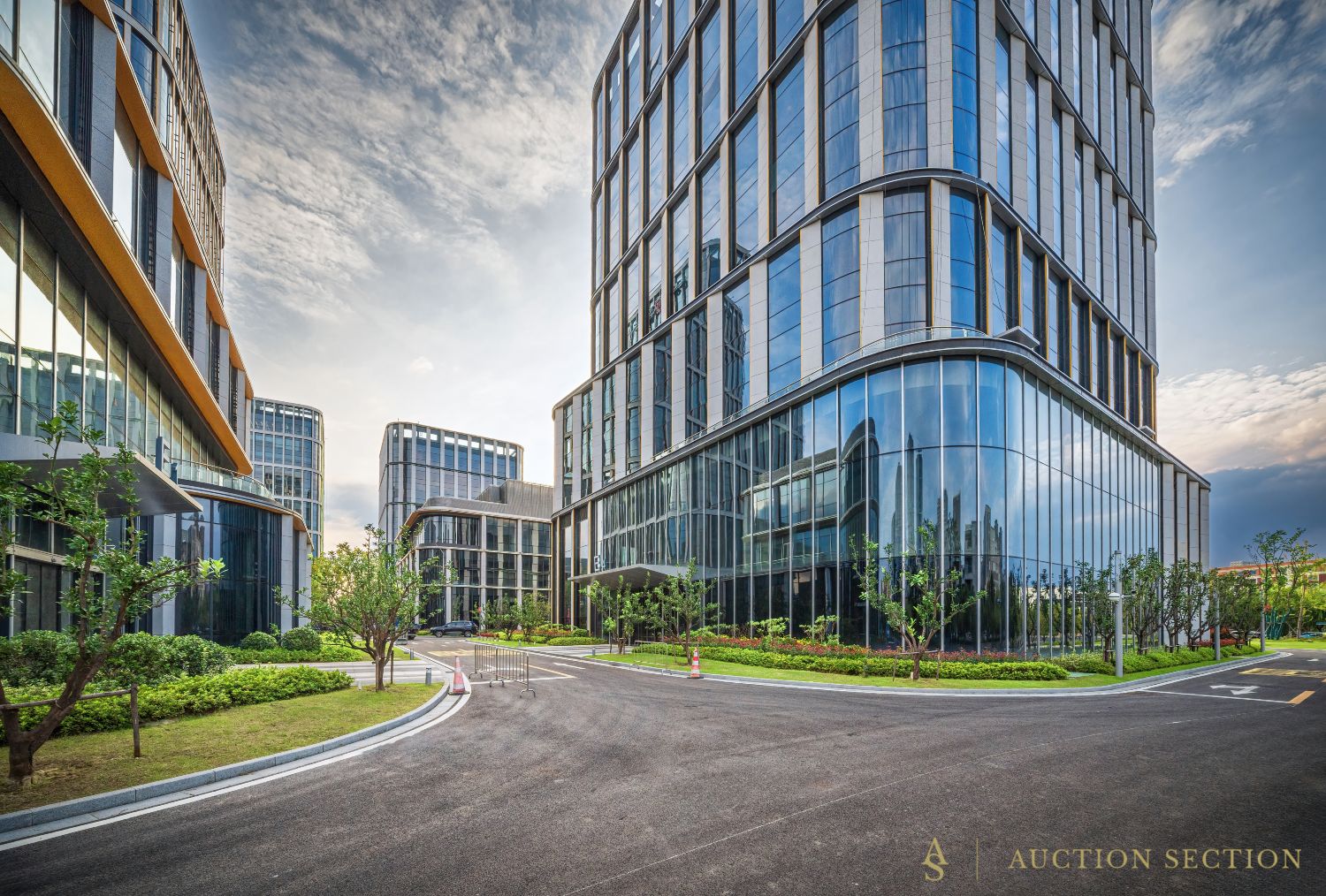
Selling commercial property through auction is one of the fastest and most strategic ways to reach serious buyers and secure market-driven pricing. Auctions simplify the sale process by offering a clear timeline and real-time competition, which often drives stronger offers.
However, not every commercial asset attracts equal interest at auction. Certain property types consistently perform better based on location, income potential, and redevelopment value.
In this guide, we examine which commercial properties sell best at auction and why they consistently outperform others. Whether you’re selling in Texas or beyond, understanding what draws bidders can help you position your property more effectively and increase your chances of a successful, timely sale.
Why Auctions Work for Commercial Real Estate In Texas
Before diving into the specifics, it’s helpful to understand why auctions are such a strong fit for commercial real estate sales. Sellers who are looking to complete their transactions quickly and with fewer roadblocks often find that auctions are the most reliable route to closing the deal.
Auctions offer:
- Faster timelines, with properties typically selling in 30 to 90 days
- Motivated and qualified buyers who are prepared to act
- Competitive bidding that reflects the actual market value of a property
- A structured process that simplifies every step from listing to closing
When marketed properly and priced strategically, auctions create a sense of urgency and attract buyers who recognise opportunities.
Commercial Property Types That Perform Best at Auction
Auctions are effective for different asset classes, but certain types consistently generate stronger buyer interest and better results in Texas. Below are the leading commercial property categories that consistently sell well at auction, along with the reasons why they continue to perform.
1. Industrial Properties
What qualifies:
Warehouses, distribution centres, and manufacturing spaces
Why do they perform well?
Industrial real estate remains one of the most sought-after commercial asset classes. Demand from logistics, e-commerce, and manufacturing has skyrocketed, and investors value the long-term income potential these properties provide. Locations near highways and distribution corridors are especially valuable.
Buyer appeal:
- Stable tenants and predictable returns
- High occupancy rates
- Increasing demand from supply chain operators
Example:
A distribution centre with a strong infrastructure located near a central transportation hub attracted multiple bids and ultimately sold well above its reserve price.
2. Retail Properties
What qualifies:
High-visibility storefronts, shopping plazas, and freestanding commercial buildings
Why do they perform well?
Despite changes in consumer habits, well-located retail properties continue to be appealing to investors seeking reliable rental income or redevelopment opportunities. Demand is robust in areas with solid foot traffic and growing local populations.
Buyer appeal:
- Income potential from tenants
- Strong visibility and accessibility
- Opportunities for repositioning or owner-occupancy
Example:
A ground-level retail space in a busy commercial corridor attracted substantial interest and sold quickly after several rounds of competitive bidding.
3. Office Buildings
What qualifies:
Single-tenant buildings, multi-tenant offices, and hybrid-use properties
Why do they perform well?
Flexibility is key in today’s office market. While work-from-home trends have shifted demand in some areas, commercial buyers still see strong potential in well-located buildings that can be reconfigured for medical, residential, or co-working use. Assets with favourable zoning and stable tenants tend to see the most activity.
Buyer appeal:
- Adaptive use potential
- Value-add opportunity through renovation
- Attractive pricing compared to other sectors
Example:
A suburban office property with solid infrastructure and zoning flexibility sold at auction after attracting developers interested in mixed-use conversion.
4. Leisure and Hospitality Properties
What qualifies:
Hotels, motels, restaurants, pubs, event venues, and entertainment halls
Why do they perform well?
These properties are often unique and lend themselves to creative repositioning. Historic buildings, unique layouts, or scenic locations can add to the appeal. Investors and operators look for leisure assets as opportunities to generate cash flow or enter new markets.
Buyer appeal:
- Potential for boutique redevelopment
- Character-rich properties with branding potential
- Adaptive use for lifestyle experiences
Example:
An independently owned boutique inn located near a tourist area drew strong interest from regional hospitality buyers and sold after enthusiastic bidding.
5. Mixed-Use Properties
What qualifies:
Buildings combining commercial space with residential units
Why do they perform well?
Mixed-use properties are popular due to their dual-income potential. Ground-floor commercial tenants provide steady rent, while residential units above offer additional streams. These properties are desirable in downtown districts and walkable neighbourhoods.
Buyer appeal:
- Diversified income
- Long-term tenant stability
- Lender-friendly property types
Example:
A corner building with retail tenants and several mid-level apartments received multiple inquiries early in the campaign and sold quickly to a buy-and-hold investor.
6. Development Sites and Commercial Land
What qualifies:
Commercially zoned parcels, infill development land, brownfield sites
Why do they perform well?
Well-positioned land with the proper zoning or planning approvals is in constant demand. Buyers in this category often include developers interested in custom builds, build-to-rent strategies, or land banking.
Buyer appeal:
- Flexible exit options
- Value grows over time
- Appealing entry price relative to completed properties
Example:
A cleared lot in a high-growth corridor with plans for a retail pad attracted multiple local bidders and achieved an above-market sale price.
Auction Performance at a Glance
| Property Type | Buyer Appeal | What to Expect at Auction |
| Industrial | Logistics, stable tenants | High conversion rates, strong bids |
| Retail | Location-driven rental potential | Competitive bidding and quick sales |
| Office | Zoning flexibility and income | Targeted investor interest |
| Leisure & Hospitality | Uniqueness, lifestyle redevelopments | Strong regional buyer activity |
| Mixed-Use | Dual-use investments | Broad buyer pool and financing ease |
| Land/Development Sites | Long-term value, versatility | Clean transactions and fast closings |
How to Prepare Your Commercial Property for Auction
Preparing your property for auction will enhance its visibility and increase the likelihood of a competitive sale. Here are four key steps to follow:
- Enhance curb appeal: Small improvements to signage, landscaping, or exterior finishes make a big difference.
- Organise documentation: Be prepared with all legal, compliance, and lease records ahead of the auction date.
- Set a strategic reserve: Utilise up-to-date market insights to determine a reserve price that balances your minimum and encourages buyer activity.
- Invest in presentation: Visuals matter. High-quality photos, floor plans, and drone footage, where appropriate, will elevate interest.
In auctions, momentum builds on clarity and trust. Sellers who provide complete and accurate information are more likely to attract qualified and decisive bidders.
Frequently Asked Questions
Industrial properties (warehouses, distribution centres), retail spaces, office buildings, leisure and hospitality venues, mixed-use properties, and commercial land or development sites perform best at auction due to their income potential, redevelopment opportunities, and strong buyer demand.
A reserve price is the minimum amount you are willing to accept as payment. It should be based on recent comparable sales, current market demand, and realistic expectations. Setting it too high may discourage bidding, while setting it too low risks selling at a price below market value. Consult your auctioneer for guidance on striking a balance between attracting bidders and protecting your investment.
After a successful auction, the closing process usually takes between 30 to 45 days. During this period, contracts are finalised, deposits are submitted, and legal documents are reviewed to ensure a smooth transfer of ownership.
Yes, properties with tenants can be sold at auction. However, it is crucial to provide all tenancy agreements and rent payment schedules in the legal pack. Proper legal notices must be served to tenants in accordance with statutory requirements to avoid delays or legal issues.
Costs typically include the auctioneer’s fees, marketing expenses, legal fees for preparing the legal pack, and any costs related to property preparation, such as repairs or enhancements. These vary by auction house and property type, so it’s essential to clarify all fees upfront.
If the reserve price is not met, the property is not automatically sold. Sellers can negotiate directly with the highest bidder, choose to re-list the property in a future auction or explore other sales options. The reserve protects sellers from having to accept a price below their minimum acceptable value.
Your Next Move in Commercial Real Estate
The auction method offers a robust, transparent, and expedited path to selling commercial properties, particularly for industrial, retail, office, hospitality, mixed-use, and development land. These property types consistently attract strong buyer interest at auction due to their inherent income potential, growth opportunities, and adaptability, aligning perfectly with the demands of today’s investors and developers.
Ready to unlock the full potential of your commercial asset in Texas? Discover how a strategic auction approach can deliver a faster, more transparent, and highly competitive sale for your property. Don’t leave your investment to chance. Connect with our experts at Auction Section today for a complimentary consultation to Sell Your Commercial Real Estate in Texas.


